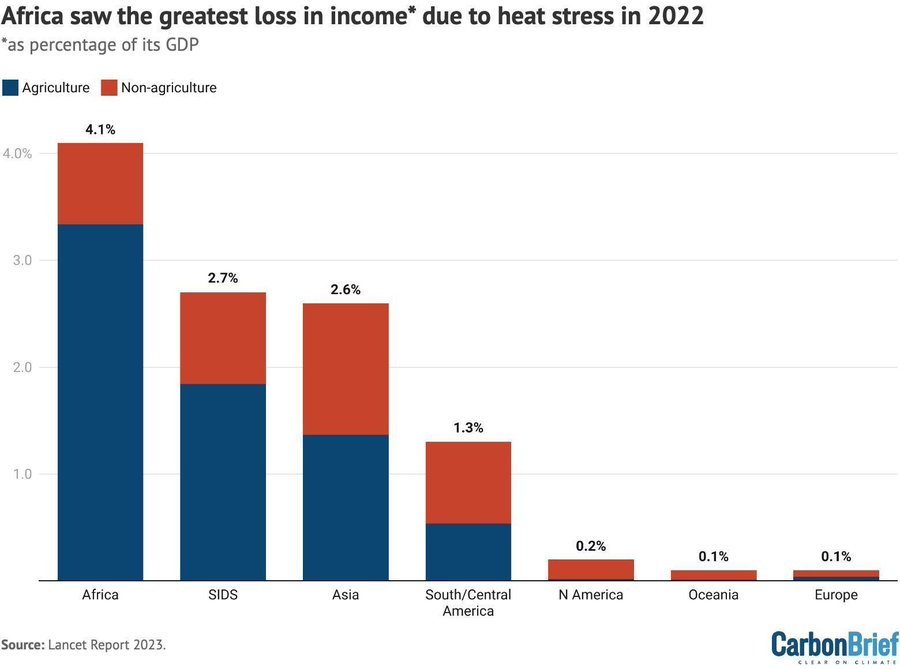 Or so CarbonBrief tells me. And it seems entirely plausible, so I won't quibble their numbers.
Or so CarbonBrief tells me. And it seems entirely plausible, so I won't quibble their numbers.
But looking at some of their other pictures, you immeadiately see the problem: they're poor.
And so we immeadiately see that there are several possible solutions: reduce GW - but this isn't much of a solution, as the pic shows, even winding back three decades doesn't get you close to losing 0%; or stop being poor, which reduces the problem to negligible levels.
As a bonus, not being poor has other virtues, too. Perhaps you can think of some.
Oddly, CB doesn't much consider that option, instead perferring to whinge about "unjust transition". The reason they are poor is, of course, that their govt is shite; which is a consequence of the state of society, alas. But addressing the real problem is difficult, and entails saying things that people don't like saying nowadays.
BTW, somewhere - but I doubt I can find it now1 - was talking about ye traditionale "GDP declines with increasing T" stuff, and quibbling its stats. But never mind the details, the interesting bit was that even if you took the stats unquibbled, as well as the strong "hot countries" T-up-GDP-down correlation, there's a weak T-up-GDP-up correlation in cold countries. But because cold countries dominate global GDP, the overall effect of T up is GDP up (possibily not-stat-sigly). I'm reminded of that by the "* as percent" qualifier in the pic above.
Notes
1. Temperature Shocks and Economic Growth: Comment on Dell, Jones, and Olken by David Barker.

I recall a paper suggesting that from an economic viewpoint the optimum average temperature for a country is 13C.
ReplyDeletehttps://www.nature.com/articles/nature15725
https://www.weforum.org/agenda/2015/12/is-there-an-optimum-temperature-for-the-global-economy/#:
Entropic man, Singaporeans might agree on comfort grounds--but their productivity and longevity suggest otherwise.
ReplyDeleteTom
ReplyDeleteThe population of Singapore experience a lower average temperature than their weather stations. I believe they call it air conditioning.
Indeed; well that's part of the point of this post. I also think it makes some of the GDP-vs-T correlations much less meaningful for hi-dev countries (although there's some trajectory dependence in there).
ReplyDelete